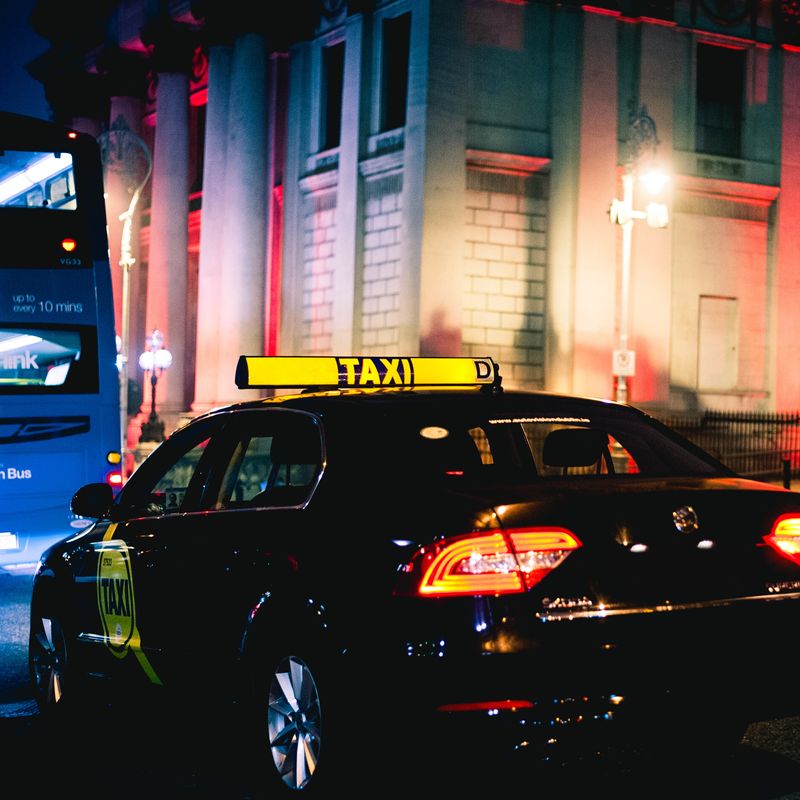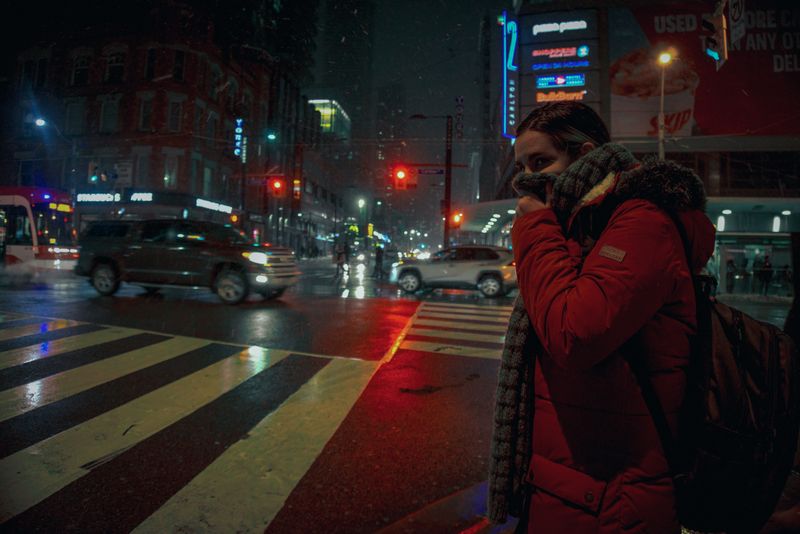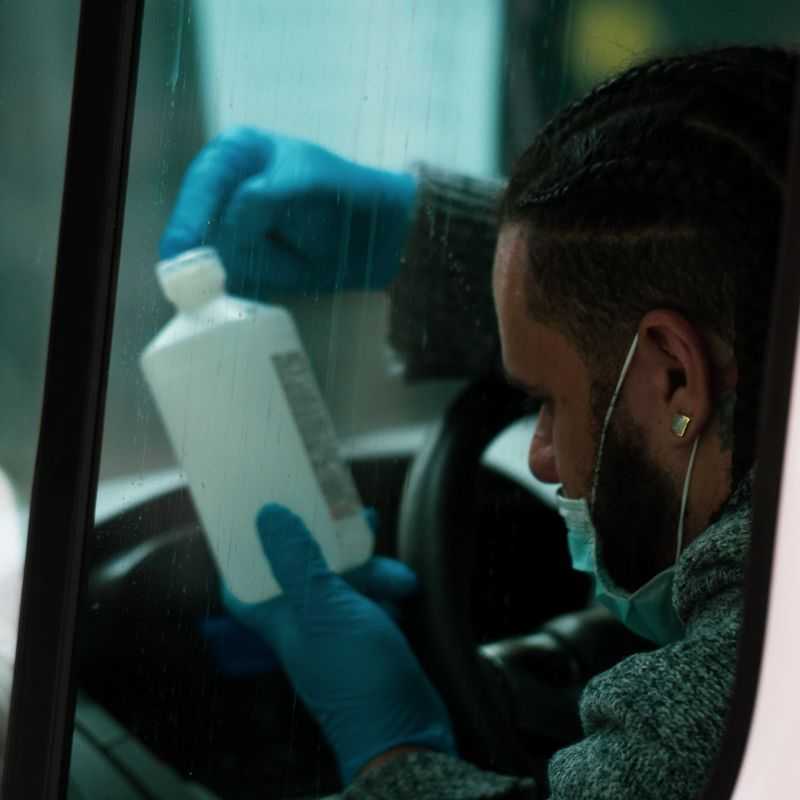
Coronavirus and Taxis: a Guide for Passengers and Taxi Drivers (2021) – In this article I have tried to collect all the most useful information about Coronavirus and Taxis services in UK, Ireland and the US.
I have researched some of the most common questions about Coronavirus and Taxis for both passengers and taxi drivers.
If you like this blog post, you may also want to check out my article on Coronavirus and Takeaways: a Guide for Customers and Operators, while if you are considering working from home, make sure you read my article Working from Home: a Guide for Employees and Employers.
Coronavirus and Taxis: General Advice for Both Passengers and Drivers
Whether you are a taxi driver or a passenger, this advice applies to those who want to protect themselves from the Coronavirus and minimise the risk of either catching or spreading the virus (source: watford.gov.uk):
- Keep social distancing
- When you cough or sneeze, cover your mouth and nose with a tissue
- If you don’t have a tissue, use your sleeve – never cough or sneeze in your hand
- Put any used tissue in the bin right away
- Wash your hands often, possibly with antibacterial hand-sanitiser. Us water and soap, if hand-sanitiser is not available
- Avoid close contact with people who are unwell or show flu-like symptoms
- Try not to touch your eyes, mouth or nose if your hands are not washed
- Do not shake hands
- Consider using disposable gloves
- Use contactless payment options, if possible
Coronavirus and Taxis: Questions for Passengers
Is it Safe to Get a Taxi during COVID-19?
Generally yes. The only potentially-dangerous scenario would be if somebody with the virus had used the taxi before you (and the taxi driver didn’t adopt any extra hygiene measure recommended).
You can catch COVID-19 if you touch the same surface touched by somebody with the virus and then touch your mouth or nose.
To minimise the chances of catching the Coronavirus from a previous passenger, you can (source: indipendent.co.uk):
- wipe down the seatbelt with antibacterial
- wear gloves
- wash your hands before and after every journey
Are Taxis still Running during the Coronavirus Outbreak?
Yes, they are. Taxis are considered as essential services as part of the transportation industry.
In Ireland and the US, taxi drivers are working. They are considered essential workers. UK taxi drivers are working too although the current literature doesn’t clarify their essential worker status (but they are still operating).

Are Taxis still Running in Ireland?
Yes, taxis are still running in Ireland as they are part of the list of essential services published by the Irish government on March 28th:
The article lists ‘land transport (for example, bus, rail and taxi services)’ as essential services.
Are Taxis still Running in the UK?
The general answer is yes, as outlined in this post (source: waterford.gov.uk):
As taxi and private hire drivers, you are permitted to continue to work if you have to
but there is still confusion on whether taxi drivers are to be considered key workers or not.
In a document published on March 19th, the UK government lists transport staff as key workers (source: gov.uk):
This includes those who will keep the air, water, road and rail passenger and freight transport modes operating during the COVID-19 response, including those working on transport systems through which supply chains pass.
As you might have noticed, there was no mention of taxi drivers other than the reference to road [passengers].
At the time of writing, whether taxi drivers are to be considered key workers or not it is still unclear, as pointed out on March 24th in an internal document by Graham Robinson, Interim General Manager Taxi and Private Hire, Transport for London (source: content.tfl.gov.uk):
We, alongside taxi and private hire trade representatives, are seeking urgent clarification from Government as to whether taxi and private hire drivers are defined as key workers. As soon as more information is known we will issue a further Notice.
Are Taxis still Running in the US?
Yes, they are but the industry is struggling, especially in New York.
According to the Metropolitan Taxicab Board of Trade, New York City’s largest taxi group, taxi rides dropped up to 91% as of March 22nd.
The New York Taxi Workers Alliance found a drop in 71% revenue from a survey run among some of its members.
Is Ridesharing Available during COVID-19?
Given the current circumstances, all ridesharing services in the UK have been suspended (source: london.gov.uk).
UBER has suspended its Uber Pool in the US and Canada, while Lyft has suspended its carpooling service Share Rides in all the markets (source: theverge.com).
In a similar fashion, cab-hailing company Free Now has switched off their Match Taxi sharing service (source: irishtimes.com).
Coronavirus and Taxis: Apps
Are Uber Taxis Running?
Uber through his taxi and food delivery service is operating across the globe.
The company created a lengthy and comprehensive web page about Coronavirus with news and advice for both passengers and drivers.
Are Lyft Taxis Running?
Lyft taxis are operating. More info for both passengers and drivers on their dedicated page about COVID-19.
Are FREE Now Taxis Running?
FREE Now taxis are operating as usual. More info on their dedicated page with news and updates about the Coronavirus.
Are Ola Taxis Running?
Ola cabs are operating. Similarly to Uber, the company has a comprehensive web page with advice for both passengers and drivers.
Are Bolt Taxis Running?
Bolt cab services are operating as usual. You can find more info on their comprehensive web page with news and advice for both customers and operators.
Coronavirus and Taxis: Questions for Drivers
How Can I Protect Myself from COVID-19?
If you are a taxi driver and decide to go to work, you might collect people that fall into one of the following scenarios:
- people who have arrived from overseas from airports or stations
- people who are simply not well
Either way, there are a number of precautions you can put in place to protect yourself. This list of precautions is a selection of advice on public health from UK government websites (source: watford.gov.uk and birmingham.gov.uk).
Ask Where They Are Coming From
It would be considered reasonable practice, especially if you are collecting somebody from the airport, to ask for their departure destination.
If they come from high-risk areas such as Spain or Italy you might want to decline the trip and recommend that they contact the local health authority or their GP for advice.
Check for Symptoms before Picking Up a Passenger
If you notice flu-like symptoms in a passenger, you might want to decline to collect them and recommend that they get in touch with the local health authority or with their GP (source: watford.gov.uk):
The symptoms of coronavirus (COVID-19) are similar to other illnesses that are much more common, such as cold and flu.
The flu like symptoms of coronavirus (COVID-19) can include:
- a new and persistent cough
- a high temperature
- shortness of breath
Ask Passengers to Sit in the Back of Your Vehicle
This is not always possible, especially for groups of people. If the number of people allows, you should ask your passenger to sit in the back seats.
This will reduce the chances of close contact, for example from sneezing.
Can I refuse to carry the maximum number of passengers I am licensed for in line with social distancing?
Yes, as long as you communicate it before the journey commences.
Keep Your Vehicle Clean
To minimise the chances of catching or spreading the Coronavirus while driving your taxi, you want to make sure you follow some basic precautions (birmingham.gov.uk):
Regularly clean surfaces, such as card payment devices, steering wheels, handbrake, door handles, with normal cleaning products. (At the beginning, middle and end of a shift as a minimum)
• Carry a box of tissues and use tissues to catch coughs and sneezes
• Dispose of used tissues in the bin as soon as possible
• Wash hands frequently with soap and water (you can keep a bottle of water and a bar of soap in your vehicle) or use a sanitizer gel – do this for at least 20 seconds. Sanitizer gel should be a minimum 60% alcohol.
In addition to these precautions, you might also want to think about accepting contactless payments options only (this is not always possible) and avoid any handshaking.

Can I Refuse to Accept Cash Payment?
‘Yes, as long as you make this clear to all intending passengers before the journey commences’ (source: nationaltransport.ie).
I am a Taxi Driver with Flu-Like Symptoms: What Should I Do?
If you develop any flu-like symptoms such as a new and persistent cough, high temperature or shortness of breath, you should not go to work.
You should self-isolate for at least fourteen days and call your GP or local health authority for advice.
I Have a Passenger with Flu-Like Symptoms: What Should I Do?
If you notice that a passenger has flu-like symptoms and this happened after the beginning, ‘you do not need to go home unless you develop symptoms’ (source: birmingham.gov.uk).
Make sure you wash your hands properly and you apply the suggested extra hygiene to your vehicle (see ‘Keep Your Vehicle Clean’ paragraph).
Can I Ask a Street or Rank Passenger for a Way to Contact Them?
‘NTA supports a driver in requesting every street or rank pickup passenger to drop a single data item (contact number) into a sealed container (one for each day of operation) solely to be given the HSE contact tracing team if requested through NTA. Such container must have the date and driver licence number written on it and be retained for 6 weeks from the day of the journey. It must then be destroyed’ (source: nationaltransport.ie).
Coronavirus and Taxis: Appendix
Coronavirus and Taxis: Sources
https://www.gov.ie/en/publication/dfeb8f-list-of-essential-service-providers-under-new-public-health-guidelin/#transport-storage-and-communication
https://www.gov.uk/government/publications/coronavirus-covid-19-maintaining-educational-provision/guidance-for-schools-colleges-and-local-authorities-on-maintaining-educational-provision
http://content.tfl.gov.uk/04-20-tph-notice-coronavirus-update-2.pdf
https://www.birmingham.gov.uk/info/50231/coronavirus_covid-19/2068/covid-19_prevention_advice_for_taxi_drivers
https://www.london.gov.uk/coronavirus/coronavirus-faqs/what-being-done-protect-drivers-and-passengers-taxis-and-phvs
https://www.theverge.com/2020/3/17/21183276/uber-uberpool-suspension-coronavirus-us-canada-carpool-pandemic
https://www.irishtimes.com/news/health/coronavirus-taxi-drivers-seek-to-ease-burden-on-emergency-services-1.4204012
https://www.independent.co.uk/travel/news-and-advice/coronavirus-public-transport-pandemic-tube-bus-train-taxi-london-underground-a9428521.html
https://www.nationaltransport.ie/wp-content/uploads/2020/03/COVID-19_SPSV_Industry_Information_Note__V2.0.pdf
https://unsplash.com/@535_productions
Coronavirus and Taxis: Photos
https://unsplash.com/@talhaatif
https://unsplash.com/photos/N4XfNRG6XCk




